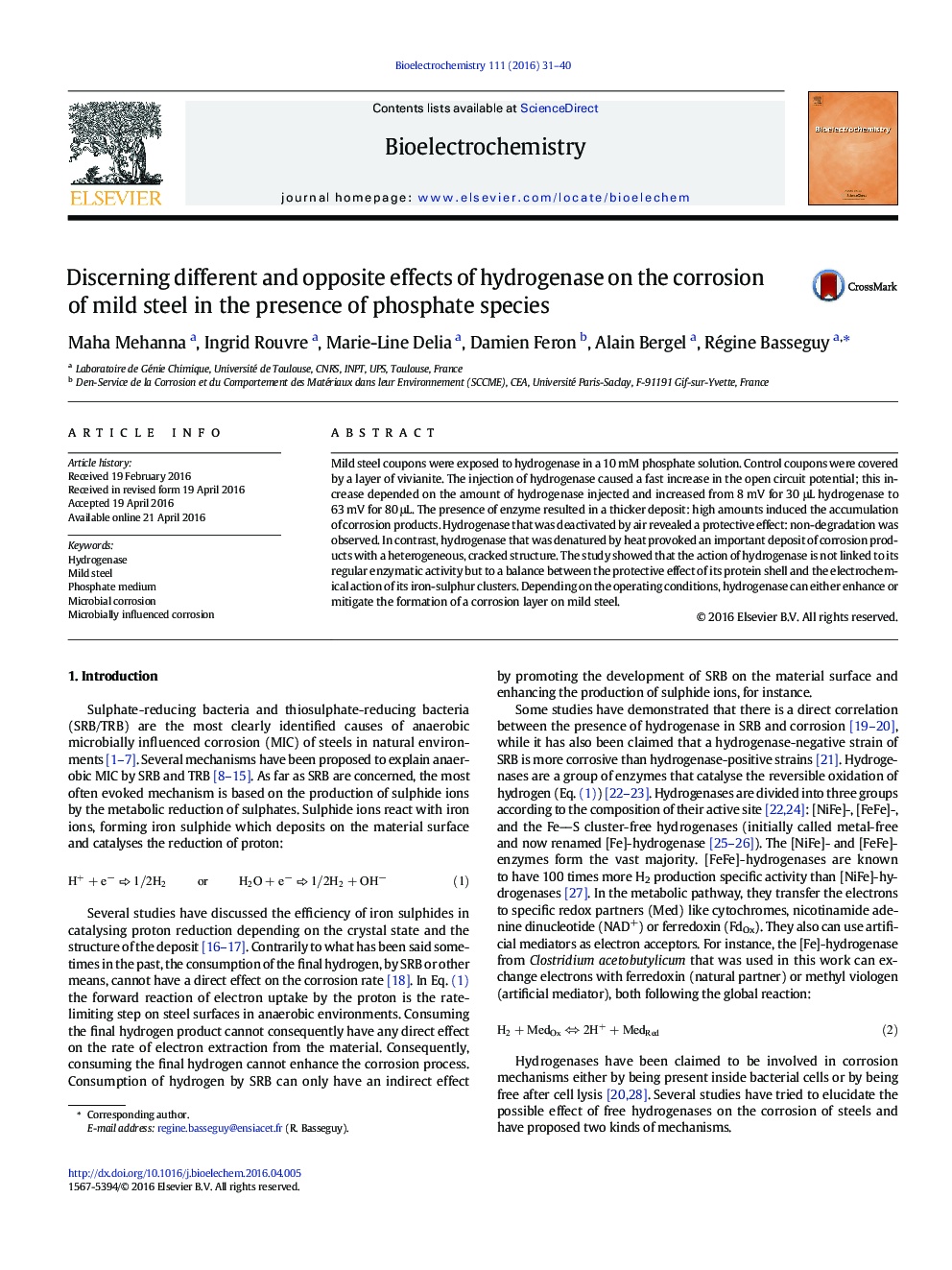| Article ID | Journal | Published Year | Pages | File Type |
|---|---|---|---|---|
| 1266834 | Bioelectrochemistry | 2016 | 10 Pages |
•Hydrogenase increases the corrosion process of mild steel in phosphate medium.•Hydrogenase that was deactivated by air revealed a protective effect.•In contrast, hydrogenase denatured by heating led to a thick deposit with deep cracks.•The iron-sulphur clusters of hydrogenase were suspected to exacerbate corrosion.
Mild steel coupons were exposed to hydrogenase in a 10 mM phosphate solution. Control coupons were covered by a layer of vivianite. The injection of hydrogenase caused a fast increase in the open circuit potential; this increase depended on the amount of hydrogenase injected and increased from 8 mV for 30 μL hydrogenase to 63 mV for 80 μL. The presence of enzyme resulted in a thicker deposit: high amounts induced the accumulation of corrosion products. Hydrogenase that was deactivated by air revealed a protective effect: non-degradation was observed. In contrast, hydrogenase that was denatured by heat provoked an important deposit of corrosion products with a heterogeneous, cracked structure. The study showed that the action of hydrogenase is not linked to its regular enzymatic activity but to a balance between the protective effect of its protein shell and the electrochemical action of its iron-sulphur clusters. Depending on the operating conditions, hydrogenase can either enhance or mitigate the formation of a corrosion layer on mild steel.
